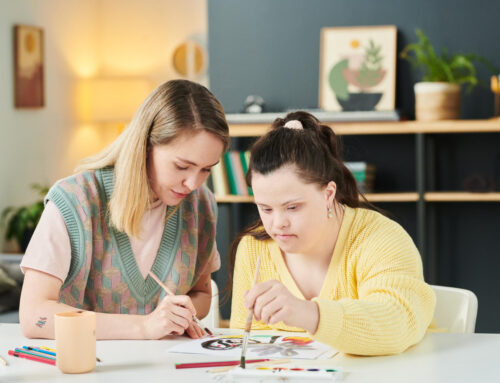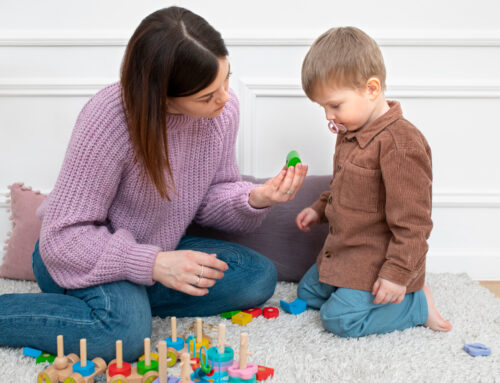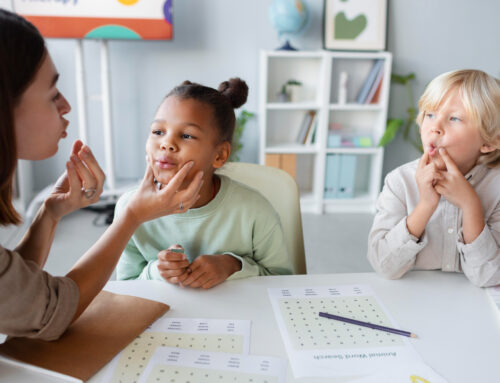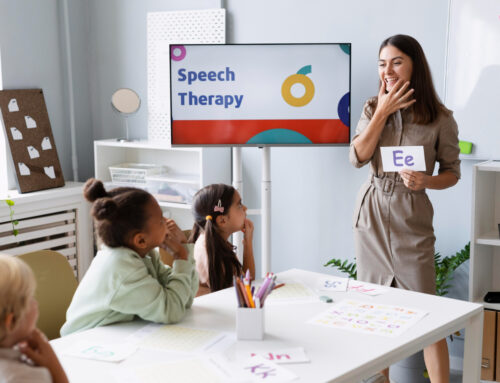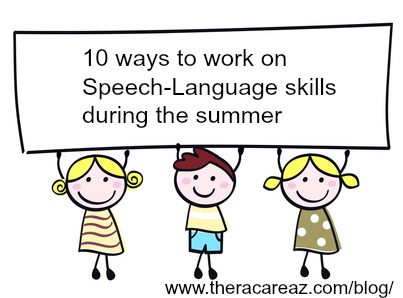
- Summer is almost here. School is out, and with that comes the halting of any school-based services until the fall. It also means vacations and other activities that can interrupt home based services. Here are 1o ways to romote your child’s speech/language skills during the summer months.
- Reading. Reading is a great way to continue to improve both expressive and receptive language skills. Incorporating daily reading time into your schedule, even 10 minutes each day, can make a difference in your child’s language skills. If your child is not reading, you can read to them or look at a book together while you point out and name the pictures, depending on their level of interest. If your child is a reader, help them make a summer reading list and have them read daily. Asking your child questions about what they are reading is a great way to further encourage expressive language skills, while reading in the summer helps continue to build literacy skills.
- Practice speech words. If your child has speech sound errors that they are working on correcting through speech therapy, a little bit of practice goes a long way. Ask your speech therapist for a weekly practice list to do with your child between therapy sessions. I always tell my parents that even just 2-3 minutes a day practice will add up to better speech habits, and help your child make progress faster than 30 minutes once a week. If your child has just started working on a sound, or has multiple sounds in error, a listening list is a great daily practice activity. A listening list (technically called “Auditory Bombardment”) is a list of words that you read to your child while they do another quiet activity (sit at the table, play with legos, while they are in the bathtub, etc). The list contains their target sound and is read at a pace of one word per second. Your child does not repeat the words, just listens to you reading the words containing their target sound. When I give a “listening list” to my client’s families, I recommend reading the list 1-2 times through, once in the morning and once in the afternoon or evening for a total of two times each day. This is a very quick and easy home activity that helps your child learn their speech sounds.
- Social Opportunities. It can be very difficult to find activities for a child with special needs where they can spend time with peers. The opportunities during summer for a child to have opportunities for social practice are lessened when they are not with their school peers five times a week. Social activities can help a child practice social/pragmatic skills from greetings to conversations to turn taking/sportsmanship. Adaptive recreation programs are offered through many communities Parks & Recreation Departments. In Gilbert, AZ, for example, the Adaptive Recreation department offers activities such as bowling, movie nights, and outings for children/adults of all abilities. Weekly outings in the community with a parent or provider can also fill the need for social language opportunities, as can play dates set up with classmates, neighbors, or family.
- Incorporate langauge apps into iPad time. We have all read that it is important to limit our children’s screen times, and that too much TV/cell phone/ipad time can hinder a child’s speech, language and social development. While this can be a challenge with any child during the summer months, it can be a particular challenge when your child has special needs. One way to give your child more opportunities to work on speech/langauge skills is to have some learning apps on their ipad. Learning apps are a great way to help a child, any child, practice a particular skill while the child is having fun. Some of my favorites are Food Frenzy (directions following), and Starfall (phonics/reading).
- Play Time. Play is the building block of speech language skills, so the more play time your child can participate in the better. For many children with special needs, however, play is a skill still being learned. Depending on your child’s level of development in this area, they will require different levels of help. To help make play time more successful, try offering toys of various types of play including cause effect, manipulatives, representational, and creative play. Cause efffect toys are toys that your child manipulates in some way and the toy does something in response (plays music, etc). Cause effect toys are a great play activity for children who may be younger or just learning how to play. Manipulative toys include puzzles, legos, and building toys. Try puzzles with knob-handled pieces or large duplo blocks for younger children or children who have fine motor challenges. Representational toys include toy cars, dollhouse/people, and other sets where the toy represents the same real life items. Creative play can include dress up items, imagination games, and arts/crafts activities. For younger children, you can also rotate toys each week to help keep interest in play higher.
- Continue to Narrate and Ask Questions. Continue to talk about what you are doing while you are doing it when you are at home or on vacation. Talk about your day and ask your child about theirs. (Try to ask open ended questions instead of yes/no to get more language out of older kids). Describing tasks as we are doing them also helps a child who is listening continue to grow their language and vocabulary.
- Talk about the schedule. Summer can be difficult for children who thrive on schedule. Talking about the day’s schedule each morning can help your child’s understanding of time and schedule grow, and decrease anxiety about changes. Posting the schedule in a common place (refrigerator) or in a child’s room can help as well.
- New experiences = New vocabulary. Summer is a time of new experiences. When visiting new places, whether local experiences or out of town vacations, name items to your child that may be unfamiliar to them. (You can have older children write about new experiences in a summer journal to help them practice writing skills).
- Play games. Games provide a great opportunity to learn and practice turn taking and good sportsmanship; both important life/social skills. Games also provide an opportunity for unscripted small talk and family fun. For children just learning to play games who have difficulty with losing, try a cooperative game where there is no “winner” but the goal is to work towards completing a goal. My favorite game to play with smaller children is Snails Pace Race by Ravensburger. In this game, there is not winner, instead each participant guesses which snail they think will win. It is fun to see who picks the right snail, and this game can be played very quickly, making it a good choice for kids who have short attention spans. For older children, you can incorporate specific speech/language practice into specific games. There are several speech therapy goals packets available on Teachers Pay Teachers and are available for anyone (including parents) to purchase. I like this yes/no questions pack that goes with the game Zingo by the Teachers Pay Teachers seller Mermaids for Speech and is a FREE download in her store. You can also find packs that go with traditional childhood games from Candyland to Jenga on this site.
- Involve your kids in kitchen activities. No matter how busy the summer schedule gets, everyone still has to eat. The kitchen provides many opportunities to learn and practice vocabulary, language, sequencing, and safety. Check out this post for 15 more ideas that help promote speech language skills for all ability levels, when in the kitchen together.
Summer is a wonderful break from academics, but that doesn’t mean that learning and speech/language activities have to stop. Keep summer speech/language activities fun, and enjoy the extra time with your child that summer allows.

 Katie Sullivan, M.S., SLP-CCC has been a pediatric Speech Language Pathologist for 22 years, and is a Therapy Supervisor with Theracare. She is the mother to five children, ages 7-17, including twin teenage sons with special needs. You can follow her at the My Sweet Homeschool blog, facebook, twitter, and instagram.
Katie Sullivan, M.S., SLP-CCC has been a pediatric Speech Language Pathologist for 22 years, and is a Therapy Supervisor with Theracare. She is the mother to five children, ages 7-17, including twin teenage sons with special needs. You can follow her at the My Sweet Homeschool blog, facebook, twitter, and instagram.

